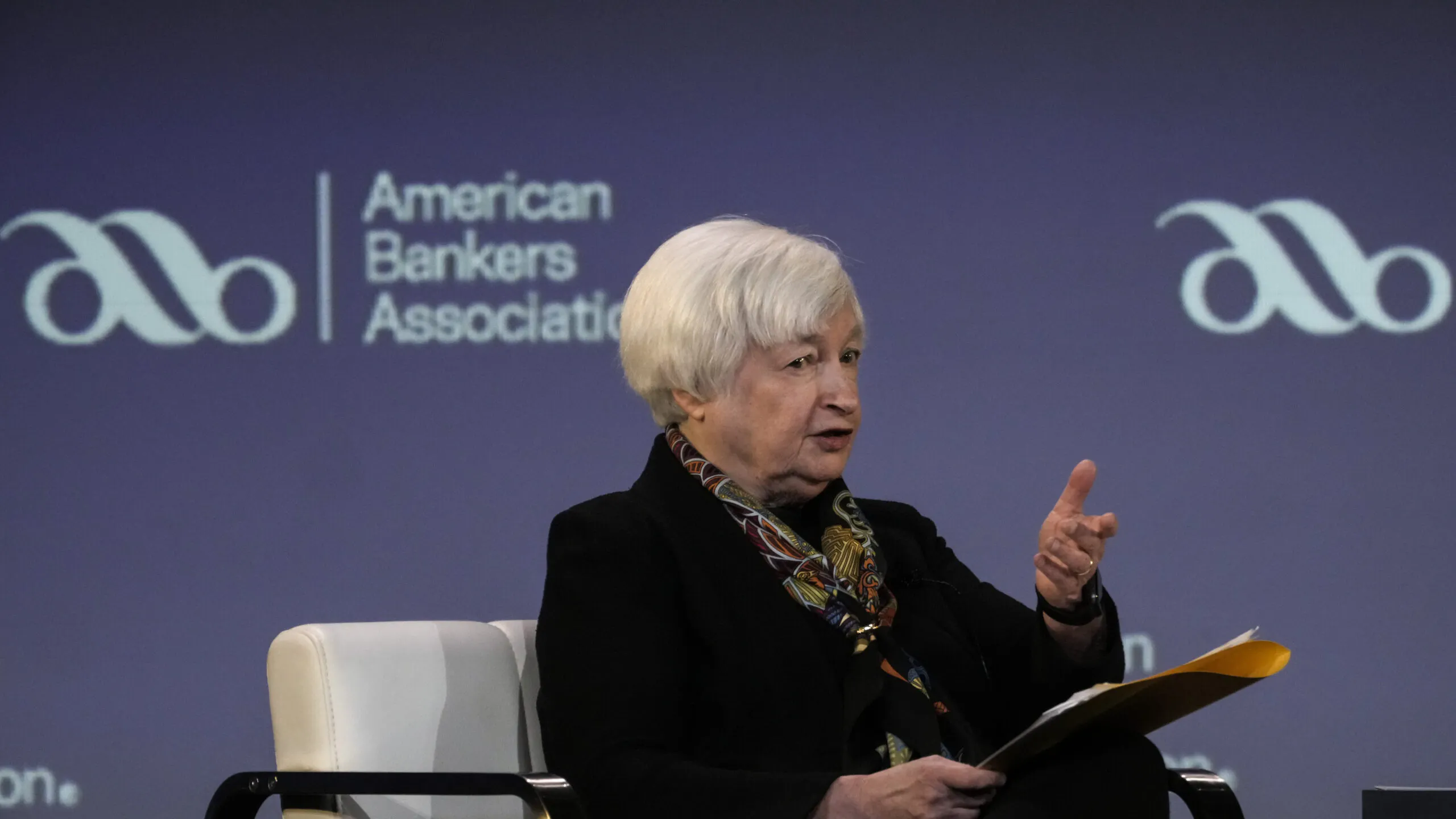Treasury Secretary Janet Yellen commented on Tuesday that deposit withdrawals from regional banks have stabilized and affirmed that authorities will protect smaller financial institutions.
The recent collapse of Silicon Valley Bank, where the vast majority of accounts exceeded the $250,000 threshold guaranteed by the Federal Deposit Insurance Corporation, prompted the government-backed company to secure all accounts at the firm to prevent more bank runs. Yellen said in remarks at a summit of the American Bankers Association that the Biden administration and the Federal Reserve successfully mitigated fallout in the financial sector.
“As everyone in this room knows, the American economy relies on a healthy banking system that can provide for the credit needs of families and businesses,” Yellen said. “Let me be clear: the government’s recent actions have demonstrated our resolute commitment to take the necessary steps to ensure that depositors’ savings and the banking system remain safe.”
Silicon Valley Bank provided services to half of venture-backed technology and health care firms in the United States. The current deposit insurance threshold of $250,000 is suitable for most individuals and households, yet businesses such as those served by Silicon Valley Bank often retain larger sums to conduct operations and pay employees.
Yellen added that “the situation is stabilizing” and characterized the banking system as “sound.” She noted that regulators are examining the causes of the failures at Silicon Valley Bank, which covered withdrawal requests by selling a bond portfolio that had declined substantially in value amid Federal Reserve actions to hike interest rates.
One recent study from analysts associated with the National Bureau of Economic Research revealed that monetary tightening from the Federal Reserve has caused bank asset values to decrease by 10%, indicating that the overall financial system’s assets are $2 trillion lower than their book value. The “substantial losses in the value of banks’ long-duration assets” indicate that “banks are much more fragile” to runs by uninsured depositors.
Approximately 1,619 of the 4,800 financial institutions evaluated by the researchers would not be able to withstand all uninsured account holders demanding their funds, while 186 banks would not be unable to withstand half of uninsured depositors demanding their funds. Both scenarios assume that the banks would not be forced to sell their long-term assets at fire sale prices to cover withdrawals.
Sen. James Lankford (R-OK) questioned Yellen last week about whether uninsured deposits at community banks in his state “regardless of their size” would likewise be “fully insured.” She initially responded that authorities would collectively decide whether failure of the institutions would “create systemic risk and significant financial and economic consequences” but vowed at the American Bankers Association that smaller banks would receive protection.
CLICK HERE TO GET THE DAILYWIRE+ APP
“Given recent developments, I think it is important to reaffirm a broader point: our dynamic and diverse banking system is critical to the American economy,” she commented. “Large banks play an important role in our economy, but so do small and mid-sized banks. These banks are heavily engaged in traditional banking services that provide vital credit and financial support to families and small businesses. They also increase competition in the banking sector, and often have specialized knowledge and expertise in the communities they invest in.”

.png)
.png)

